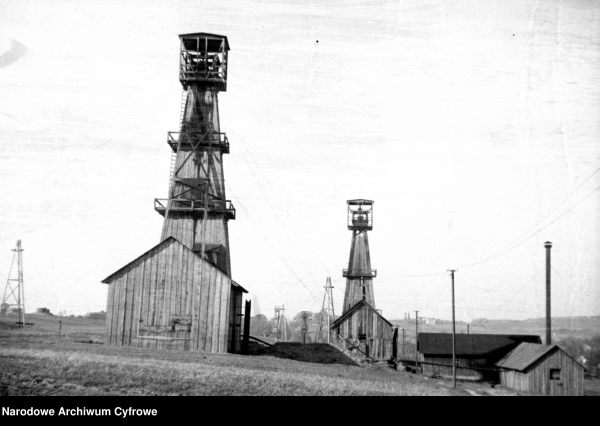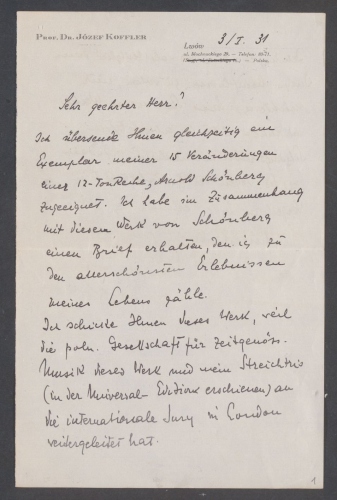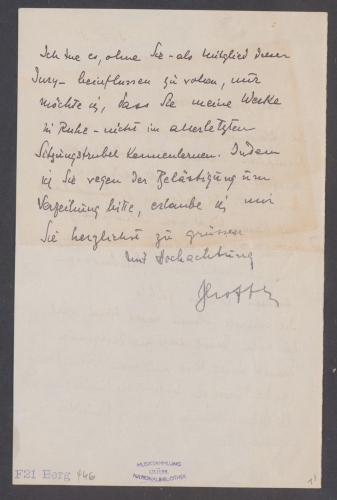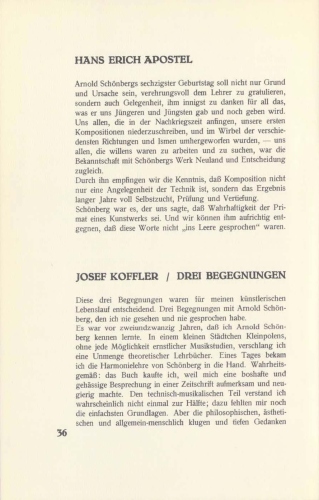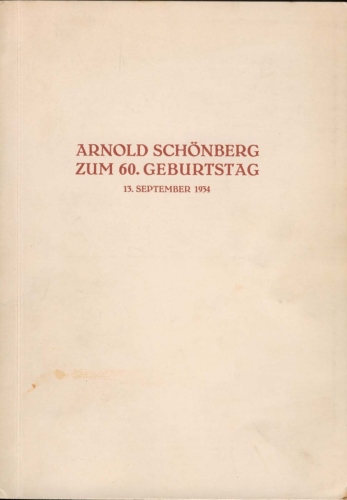In Lwów, in Akademicka Street near the Polish Music Society, the first modern office building (seven stories high), known as the New Sprecher Building designed by Ferdinand Kassler, is being constructed.
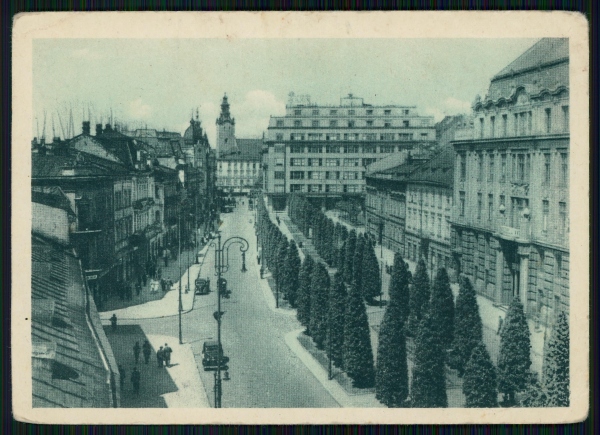
28 February
A branch of the International Society for Contemporary Music (ISCM), Polish Section, is established in Lwów. The following persons are elected to serve on its managing board: Adolf Chybiński – honorary chairman, Adam Sołtys – chair, Stefania Łobaczewska – deputy chair, Zofia Lissa – treasurer, board members: Józef Koffler, Seweryn Barbag, Leopold Münzer, and Zofia Kozłowska. The branch operates actively till 1933.
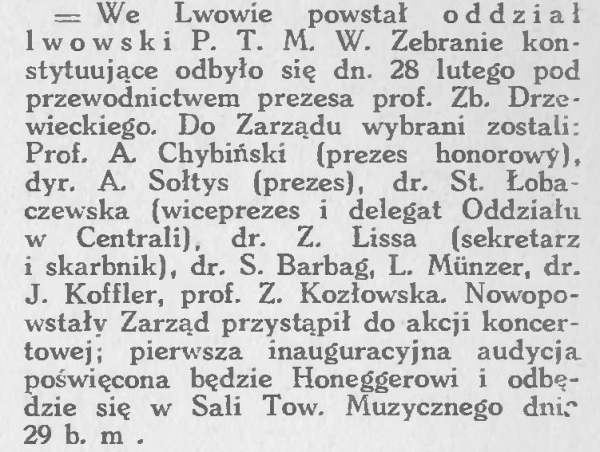
3 January
Koffler writes to Alban Berg:
Dear Sir!
Please find enclosed a copy of my 15 Variations, dedicated to Arnold Schönberg. In connection with this work, I received a letter from Schönberg – one that I consider as one of the most beautiful experiences in my life. I am sending you this message because the Polish Section of the International Society for Contemporary Music has submitted the piece [the Variations], along with my String Trio (published by Universal Edition), to the international jury in London. Without intending to influence you in any way as a jury member, I am sending the works so that you can examine them in peace rather than amid the hustle and bustle of the final jury meeting. Please forgive me the inconvenience. I only take the liberty to send you my heartfelt greetings and words of deepest respect. Koffler
March
Koffler is appointed to the jury of the 1931 State Music Prize (along with Karol Szymanowski, Stanisław Wiechowicz, Stanisław Niewiadomski, Jan Głowacki, Mateusz Gliński, and Tadeusz Joteyko). After holding deliberations in Warsaw, the jury awards the prize to Jan Maklakiewicz.
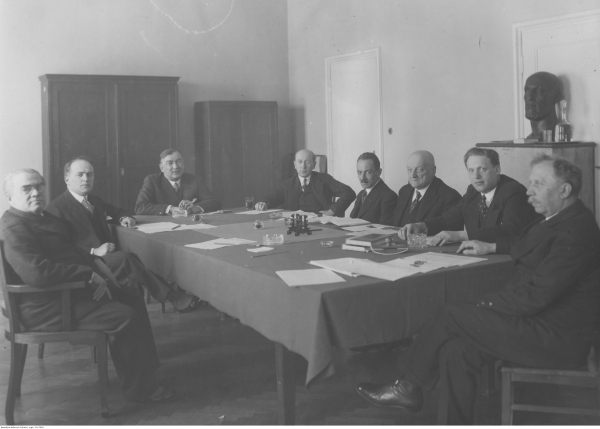
Adolf Hitler’s appointment as Chancellor of Germany on 30 January marks the Nazi Party's rise to power. By March, the Enabling Act granted Hitler dictatorial authority, initiating the Third Reich era and beginning the systematic persecution of political opponents and Jews.
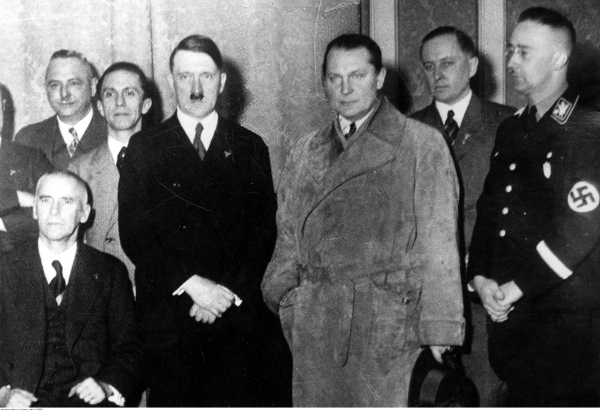
To mark Arnold Schönberg’s sixtieth birthday, Koffler submits a homage titled Drei Begegnungen [‘Three Meetings’] to a celebratory volume prepared by his pupils and friends. In the text, he writes:
I have one great wish: to meet the Maestro again, this time – in person.
January–February
Muzyka (Nos. 1–2) prints Koffler’s paper titled Avant-garde Music: A Bird’s-Eye View, in which the author reports on the meetings of the ISCM jury and sums up the current state of new music. He praises composers from Czechoslovakia and Italy, the talent of the Yugoslav Osterc and the Argentinian Paz. He assesses the Polish scores as rather ‘one-sided’ since
our composers shun musical problems and polyphonic complexity; sound colour is more important to them than the musical contour; they are more after artistry than after art.
He describes the works submitted by the Soviet section as ‘a disappointment’.
ISCM Polish section headquarters intend to hold a Festival of Slav Music in Warsaw. In a letter to Hába (of 7 February) Koffler confirms that the agreement (Protokoll) they both signed has officially been approved of by the Polish section, but he himself ‘has not been authorised to take further steps’.
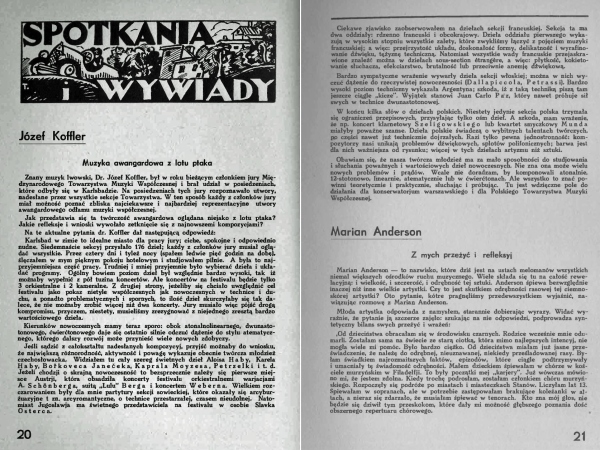
Following the unexpected death of Alban Berg, Koffler published a tribute in Orkiestra (No. 1):
The musical world laments the prematurely departed creative talent who could have led contemporary music on ever new tracks. I have lost a great, noble, and supportive friend.
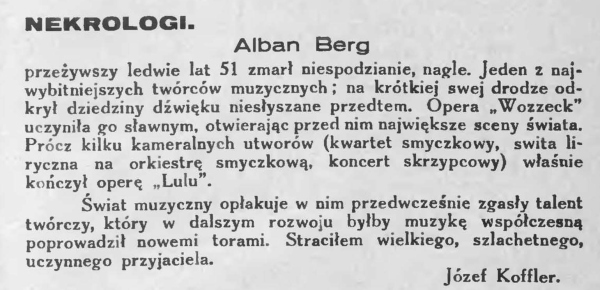
January
Echo prints Koffler’s unsigned text titled Ahura and Shahura Mazda [Ormuz i Szarmuz], in which the author points out inaccuracies and imprecisions in the fifth issue of Warsaw periodical Muzyka Polska.
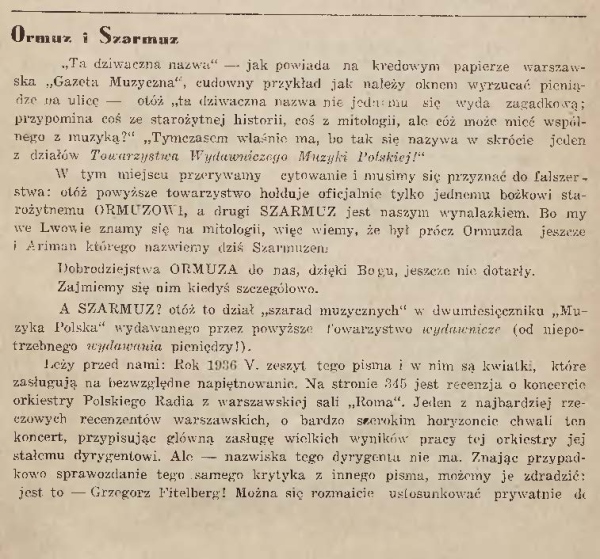
24 January
Koffler, his wife and son are baptised in the Roman Catholic rite, at the parish church of St Nicholas in Lwów, by Father Stanisław Narajewski, ThD, a professor at the Jan Kazimierz university. Zofia and Wojciech Gołuchowski act as godparents. In the parish register, the Kofflers are listed as a married couple under the date of their marriage in the Jewish rite.
Julius Bahle’s book Eingebung und Tat im musikalischen Schaffen: ein Beitrag zur Psychologie der Entwicklungs- und Schaffengesetze schöpferischer Menschen is published in Leipzig. In the book, that eminent scientist and author of fundamental research on the creative process in music quotes Koffler’s statement:
I always associate melodic lines in my own and other music with the sense of physical movement. My first Symphony, Op. 11, began with the slow movement, which came to my mind quite clearly while climbing stairs, and which to me constitutes (!) an expression of heavy, strongly constrained but at the same time powerful upward movement.
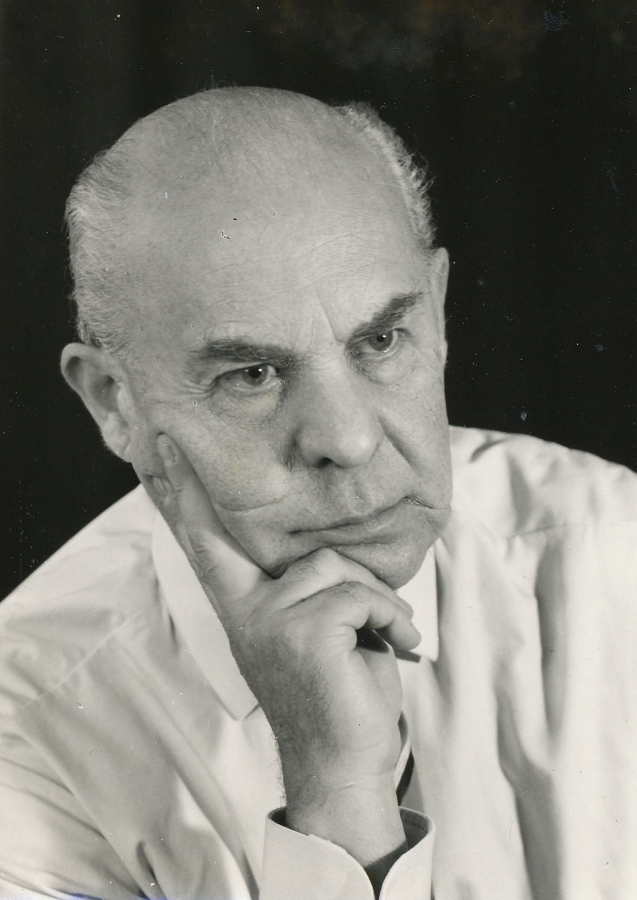
28 March – 5 April
Together with such other composers as Vasyl Barvinsky, Stanyslav Lyudkevych, Mykola Kolessa, Tadeusz Kassern, and Adam Sołtys, Koffler travels from Lwów (Lvov) to Kyiv for the All-Union Plenum of the Organising Committee of the Union of Soviet Composers. The delegates present reports, attend concerts and debates. The audience in Kyiv has the first opportunity to hear Koffler’s music (a performance of his Symphony No. 2).
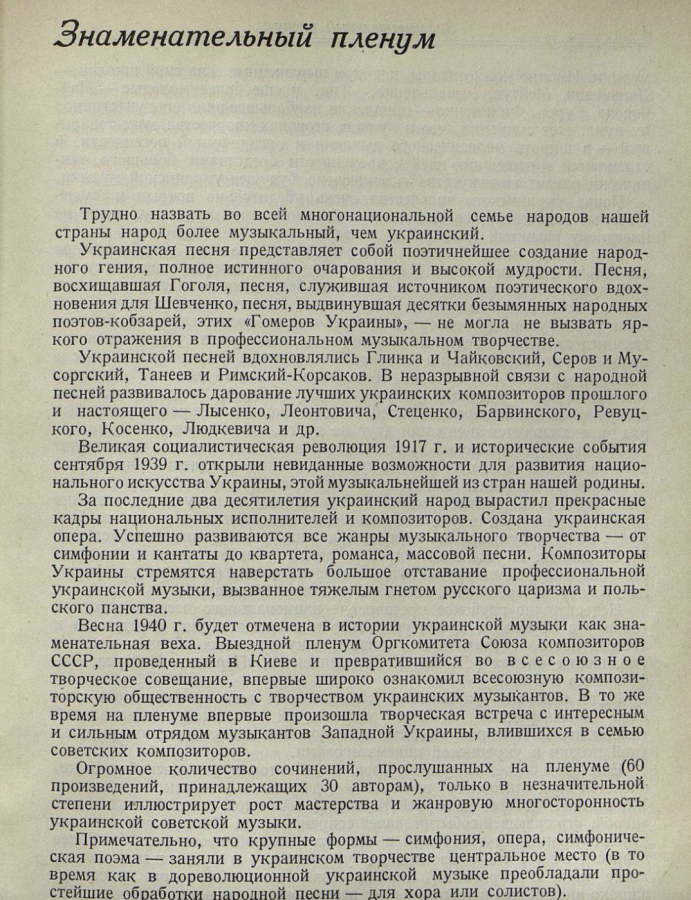
15 January
Koffler’s Joyful Overture, commemorating the events of 17 September 1939, is performed along with his Händeliana variations.
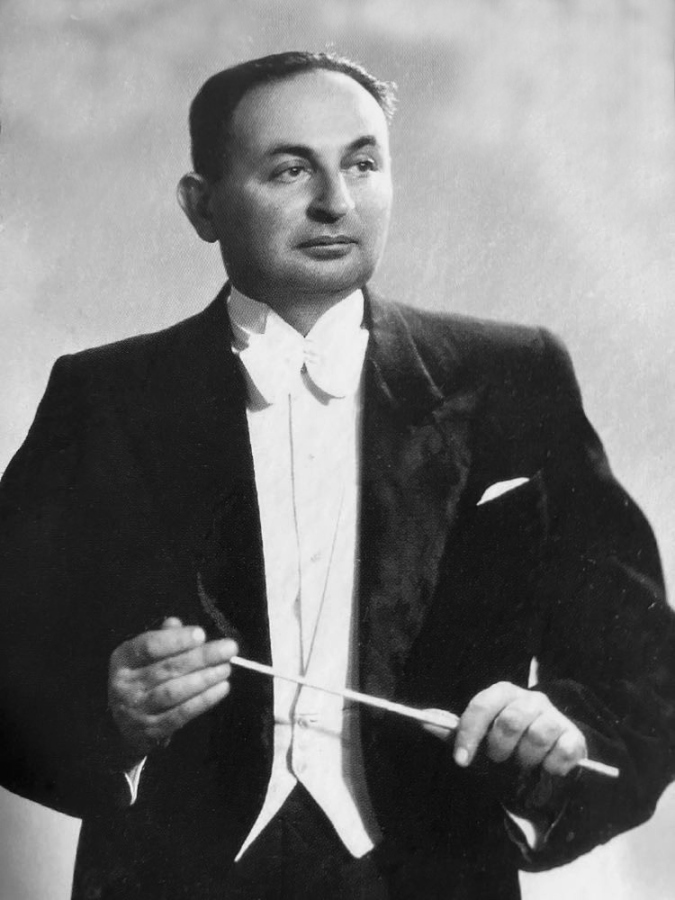
Information about Koffler and his family’s fate in this period, and their end, is not consistent. Maciej Gołąb offers as many as five hypotheses concerning the composer’s death, varying in probability. None of them can be confirmed for lack of direct sources. The following seems to have been the most likely course of events.
